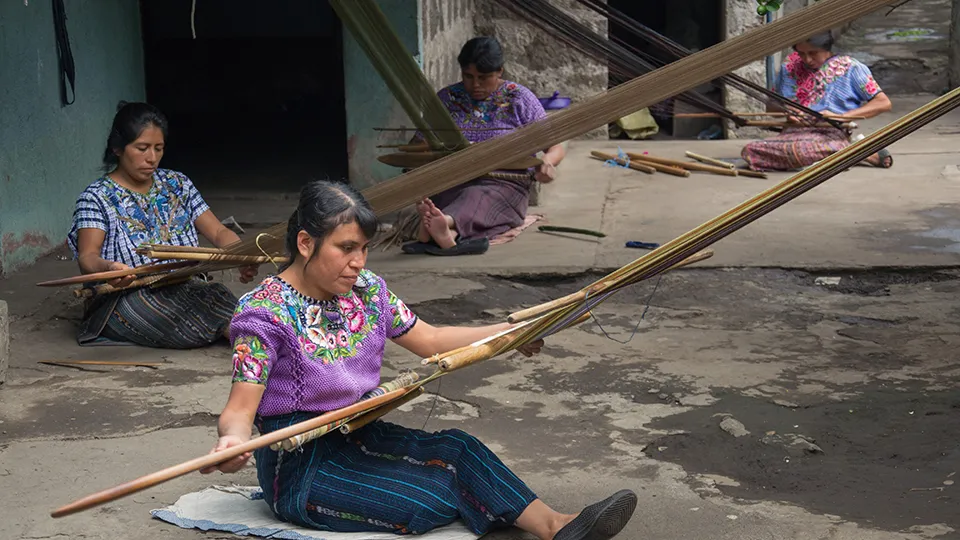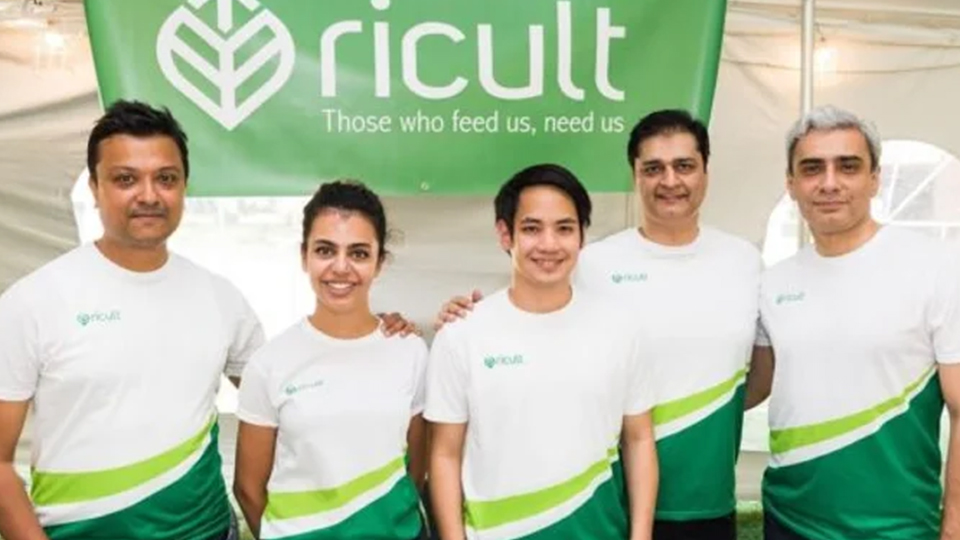The Maya of Guatemala can trace their heritage back thousands of years, but face challenges in preserving their culture in an increasingly globalized world. To support Indigenous women, the organization Cojolyá was born in 1983 in Santiago Atitlán, a stronghold of Mayan culture in the southwest of the country.
In 1996, following the conclusion of the Guatemalan Civil War, a lack of work and the low prices paid for handmade textiles motivated Candis Krummel, a US entrepreneur, and Antonio Ramírez Sosof, a Guatemalan craftsman, to create a business that directly benefited women weavers. And so, in 1996, Cojolyá evolved into the Cojolyá Association – supporting women whose livelihoods depend on the traditional Mayan art of backstrap weaving, and preserving their customs and traditions.
Over the years, the Cojolyá Association has expanded its activities to include social impact programs. These provide financial support to artisans in low-income families, enabling them to access medical care and treatments, and education for their children. On top of this, the programs include training and personal development courses, so that female weavers can build their confidence and establish their own entrepreneurial initiatives.

Targeting socially conscious consumers
Today, the Cojolyá Association enables Indigenous artisans to reach ethical markets and consumers around the world. It exports wholesale to seven countries, with the biggest buyer being the United States, and sells direct through an online shop. As a member of the World Fair Trade Organization, the Association guarantees a fair price to its members for bags, hats, scarves and other textile products. And, in an offshoot initiative, it promotes weaving classes in Santiago Atitlán as a form of sustainable tourism.
Selling to socially conscious consumers globally means that the Cojolyá Association has been using e-commerce for over a decade. Despite this, the Association’s employees and 50 members have limited knowledge of intellectual property (IP) or how to manage it online. As a result, the Association’s website and online store were not effectively unified, protected or promoted.
Understanding intellectual property and its importance for business success
To help fill this knowledge gap, the Cojolyá Association took advantage of a seven-week mentoring program delivered by the World Intellectual Property Organization (WIPO) to eight Guatemalan organizations in 2023. This program, one of 13 rolled out across Central America, promoted the use of IP for micro-, small and medium-sized businesses (MSMEs) – helping them to meet the growing demands of online commerce.

The mentoring program demonstrated how effective IP management can not only strengthen business strategies but also serve as an important source of investment and financing. By the end of the program, in March 2024, WIPO had worked with 154 individuals and 49 MSMEs from across Costa Rica, El Salvador, Guatemala, Honduras, Panama and the Dominican Republic.
Developing web analytics
The individuals representing the Cojolyá Association at the WIPO mentoring program included Carina Vasquez, José Sicay Messiah and Edwin Ajuchán. Through the program, they developed an understanding of web analytics, enabling them to make best use of website functions and options, and accurately measure the actions and behavior of audiences online.
This new knowledge has informed an effective strategy to increase online sales and further promote the Cojolyá website and ethical brand through social media channels. It is also helping the Association to improve its provision of customer service.
The mentoring program also gave advice on registering a trademark to protect the Association’s IP. Until participating in the program, the Cojolyá Association had not registered a trademark because of the high cost involved, but it is now considering this as a means of securing its brand in the future.
Protection for Indigenous IP
Other forms of IP protection explored during the program include certification and collective marks, which can be used by a community to guarantee that goods and services meet specific characteristics or qualities, such as a particular method of manufacture or geographical origin. Geographical indications are another form of collective right. These can provide the holders of traditional knowledge or cultural expressions, such as the backstrap weaving of the Maya, with the means to differentiate their product from competitors by emphasizing its geographical origins. By highlighting a product’s special characteristics in this way, geographical indications can also increase a product’s value among consumers.
Indigenous MSMEs can also benefit from trade secrets, which prevent secret and commercially valuable information, such as traditional manufacturing processes, from being disclosed, acquired or used by others without consent. Indigenous MSES with an established reputation, distinctiveness and goodwill in their creation of traditional products can also use unfair competition laws to object to false connection claims – for example, if machine-produced textiles were being falsely sold as traditionally made Mayan backstrap weaves.
Armed with this knowledge, and with a deeper understanding of e-commerce, Carina, José and Edwin are supporting the Cojolyá Association to consolidate its presence online – and keep the Mayan art of backstrap weaving well and truly alive.



